83 thoughts on investing and not only
What have I (not) learned for 17 years as a market participant?
Time is the ultimate equalizer. Even chaos is a function of time. Yet we do our best to squander it.
Realizing the importance of time in the markets and life was one of the hardest yet most important lessons I have learned. However, it is not the only one.
It's time for another philosophical inquiry. In today's post, I share thoughts about the lessons I have learned as a market participant over the past 17 years.
If I aim for anything, it is to evoke emotions. To make you laugh, offend, sadden, provoke, and outrage. In short, to get you out of the inertia of everyday life and to look at your reflection in the text you are reading.
Lastly, the article will not give you answers but only provoke you to ask more questions.
Let's get started.
Philosophy for Investors and Investments for Philosophers
Know thyself.
To find out who you are, you first have to find out who you are not.
The market does not reward the smartest but the least stupid.
The decisions we do not make define us at least as much as the ones we make.
What we don't know will always be more than what we do know. Only we can reduce the amount of what we don't know.
Arrogance has no place in the markets. It blinds us to our blindness. Let us not forget that victory often conquers the victors.
Our greatest success, but also the greatest failure, is always lurking around the corner. Be humble.
Humans tend to overestimate what we know and underestimate what we don't.
Markets always move in the direction causing the most pain to the most significant number of market participants.
Money and experience met. Money left with experience. The experience left with the money.
Practice tells us the How and theory the Why. Both are equally important.
Mediocrity begets mediocrity. And worse, mediocrity is contagious because it is comfortable. Accepting mediocrity is one of the greatest betrayals of self.
Do we have an edge?
Both the seller and the buyer think they are more intelligent than the other side of the transaction. And one is always wrong. But which one? In short, the market participant who is without a sustainable edge.
Investing begins and ends with us. The most sustainable edge in the game is knowing ourselves.
If we all read the same books, we will think the same way and make the same decisions. Then, do we have an edge?
Without a clearly defined edge, we have no business in the markets. There are three types of edges - informational, analytical, and behavioral.
The informational edge is (almost) non-existent. Our chance for success lies elsewhere—in our ability to analyze information and apply conclusions—in the analytical and behavioral edge.
Most weight for the outcome of our investments bears the behavioral edge. This is our (in)ability to execute our ideas.
Certainty, losses, and gains
I'd rather be certain of uncertainty than uncertain of certainty.
There is certainty only in death. And yet, people choose unhappiness over uncertainty.
There are two certainties in the markets - uncertainty and change.
The markets offer three things for granted: efforts, losses, and pain.
In the markets, profits are always optional.
Legend has it that unrealized losses are not losses but that unrealized gains are gains. How convenient ... and misleading.
Any profit realized was first unrealized. However, not every unrealized profit becomes realized.
Tools, goals, and price
In the markets, there are no universal tools. A screwdriver does not hammer nails, and a hammer does not screw bolts.
Exalting any tool/asset/strategy and totally dismissing another is a sign of arrogance and ignorance.
The utility of the chosen tool/asset/strategy is a function of the person's abilities—no more, no less.
Selecting the right tools for us involves balancing goals, skills, and risk tolerance. If all three don't match, it's not our tool.
In the markets, we choose between three main objectives: preserving principal, generating cash flow, or capital gains. At best, we can achieve two out of three, but never three out of three.
What we choose is our goal. And what we do NOT choose is the price we pay.
First, we must choose the goal, understand the price, and decide if we are willing to pay.
The Arrow of Time
The arrow of time has only one direction: the future becomes the present, and the present becomes the past.
By definition, the future is unknowable. We can only create scenarios with varying degrees of credibility—potential, possible, plausible, probable—but never certain.
Trying to kill time is the gravest mistake we can make. In the end, there is murder, but we are the victim, and the time is the perpetrator.
We can make time work for us by stopping neglecting it and using the right tools.
Options and bonds are explicitly time-dependent, while stocks are not. However, this is no excuse for treating stock as a forever investment. Time will remind us sooner or later.
We should never confuse the probability of an event occurring, i.e., frequency, with the distribution.
The game of markets can be compressed into two variables: payoffs and odds. No matter the instruments, strategy, and assets, the results are always a function of our skill in handling these two variables.
Assuming we know the probability that the next trade will be a winner or a loser does not tell us the distribution. That is, if we have a 50% chance of a loss and, therefore, a 50% chance of a gain, then out of 100 trades, there is a scenario, albeit unlikely, where we realize 50 consecutive losses or gains.
On Gurus
Not everyone who sells something is a guru, but every guru sells something.
There are no omnipotent tools, assets, or strategies. If someone claims otherwise, they are most likely a guru.
Individuals who are too often in the mainstream media bring everything but noise. Hence, consuming mainstream media increases the likelihood of running into a guru.
Gurus prosper for the simple reason that “easy” is always in vogue. There is no “easy” in the markets or life.
Process, risk, and valuation
We must focus on what we can control, not what we can't. We only have control over the process, not the results.
Investing is a business. Every business consists of processes. Therefore, investing consists of processes.
The presence of an investing process does not guarantee success; however, its absence guarantees losses.
The investment process is simple but not easy to implement. Its three steps are research, valuation, and execution.
In the markets, execution carries the most weight for the results. When and How much to buy matters more to the bottom line than What to buy.
I will always leave money on the table. That is, I never chase maximum profit. On the other hand, I never go out too early for a profit.
Losses destroy our mental and financial capital. Capital is a limited resource with alternative uses, so losses are cut relentlessly.
Liquate losers decisively and nurture winners patiently.
Selecting companies is an exercise in rejecting bad ideas, not so much in collecting good ones.
The fair price is determined by the market, not by us. Our estimate serves only as a potential scenario. Never forget that.
If we need a complicated formula to evaluate a business, we probably don't know what we're doing.
Valuation is in no way a substitute for research and execution.
There is a least inappropriate valuation method for every sector and industry. Moreover, there are neither universal nor perfect methods.
Information, books, and content
Information is not knowledge, and knowledge is not wisdom. At the same time, wisdom begins its journey as information.
Collecting information does not equal understanding, much less success in markets.
We need the correct information at the right time, but not all the information.
Unread books define us more than read ones.
The more complex the book is to read, the more value it brings.
If the book we're reading doesn't provoke us to read three more books on the subject, we should leave it.
There is often an inverse correlation between a book's popularity and quality. The politically incorrect trick is NOT to read books that are bestsellers, especially from the last ten years.
Reading quality books is one of our few undeniable edges in the market.
An essential prerequisite for reading quality books is not reading the bad ones.
The word "content" is emptied of content.
Pareto's rule also applies to books and finance-related media. Less than 10% of all financial media and books carry more than 90% value.
Thanks to AI, these percentages will become increasingly skewed. Choose carefully what you do NOT read.
Efforts, responsibility, and discipline
Every endeavor needs three ingredients: time, effort, and money. Time is the most neglected, effort is the most hated, and money is the most coveted.
Without effort and patience, we multiply by zero. No matter how much money we start with, the outcome is clear—our money goes to the one who puts in the effort and time.
Any market participant's key qualities are responsibility, curiosity, and perseverance. However, they obey the most despised one: discipline.
We are solely responsible for the quality of our investment process.
Curiosity is the engine that will drive us to keep asking questions.
We need perseverance to keep going and play a game without guaranteed results.
Discipline is the master. To be disciplined is to be your own greatest tyrant. If you are not, someone else will be.
In conclusion
With these conclusions, you will not become King Midas - turning every trade into gold.
The game in the markets is difficult and uncertain. If anyone claims otherwise, he is either ignorant or a snake oil seller, too frequently both.
Use today’s essay as a mirror to see yourself because, as the first aphorism in the article says, it all begins and ends with us.
Know thyself.
On the markets, we are wrong until proven otherwise. So, take the above thoughts with a grain of salt.
Everything described in this report has been created for educational purposes only. It does not constitute advice, recommendation, or counsel for investing in securities.
The opinions expressed in such publications are those of the author and are subject to change without notice. You are advised to do your own research and discuss your investments with financial advisers to understand whether any investment suits your needs and goals.


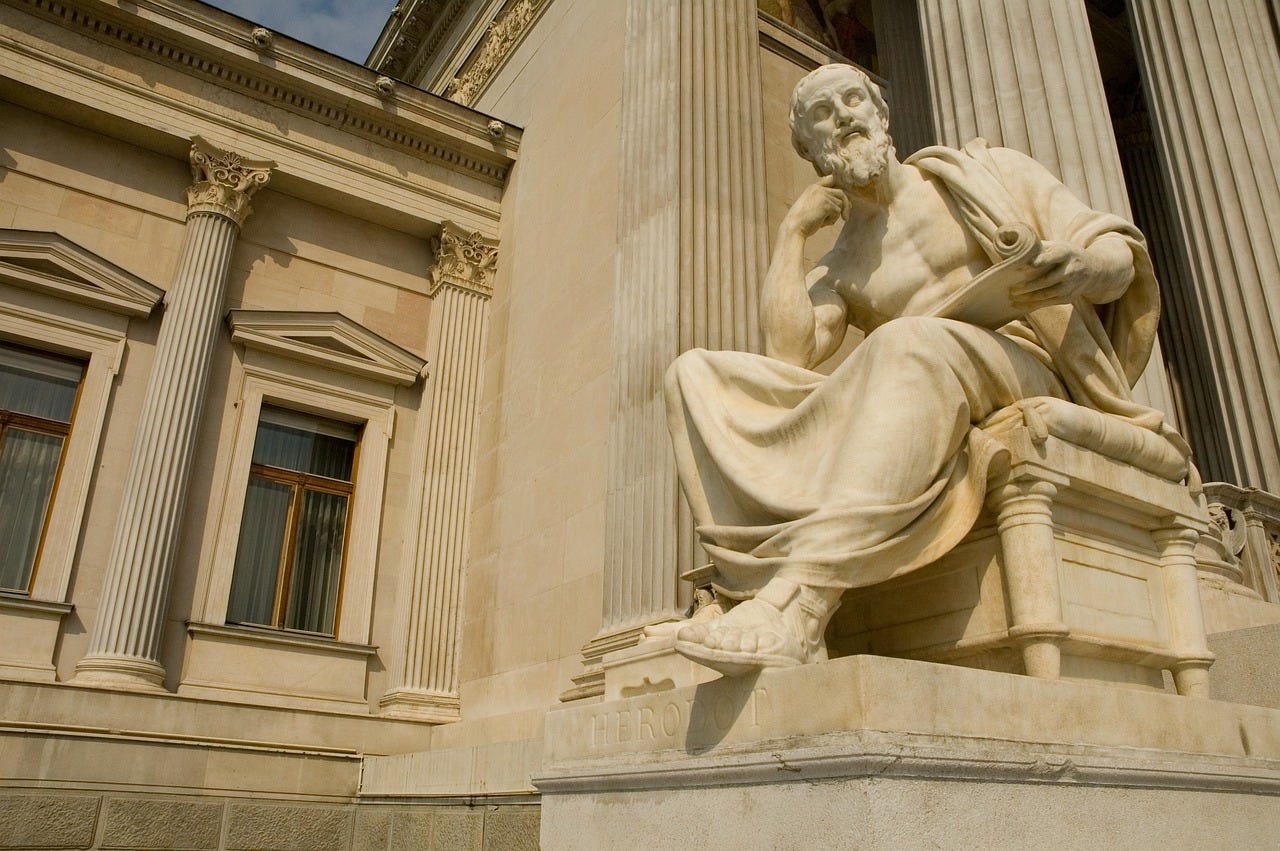
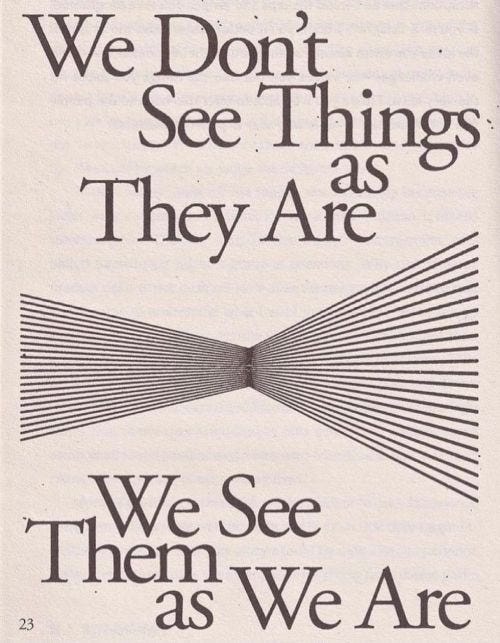
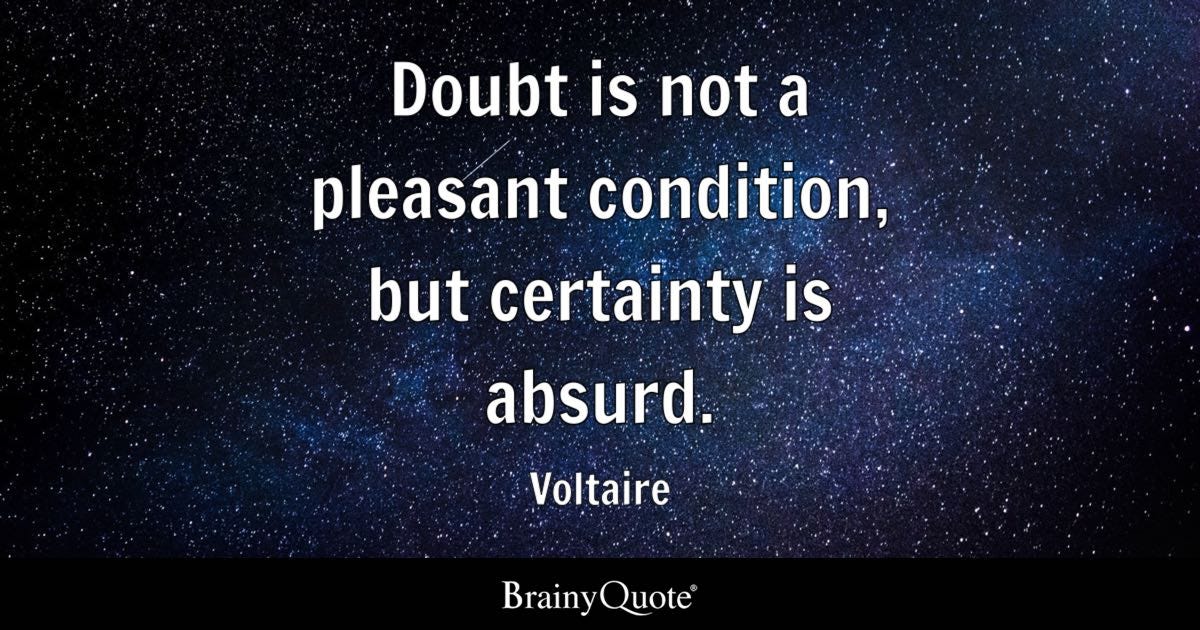
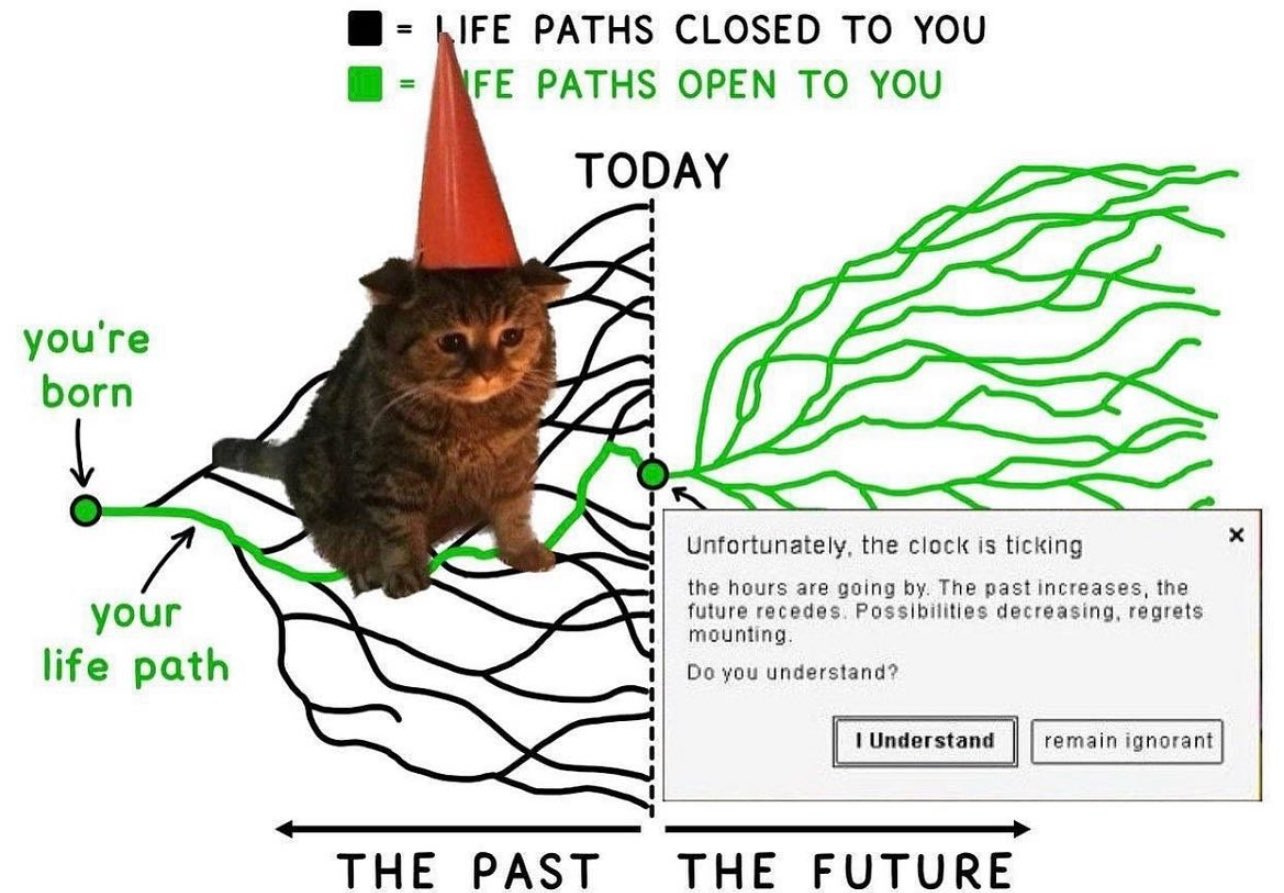
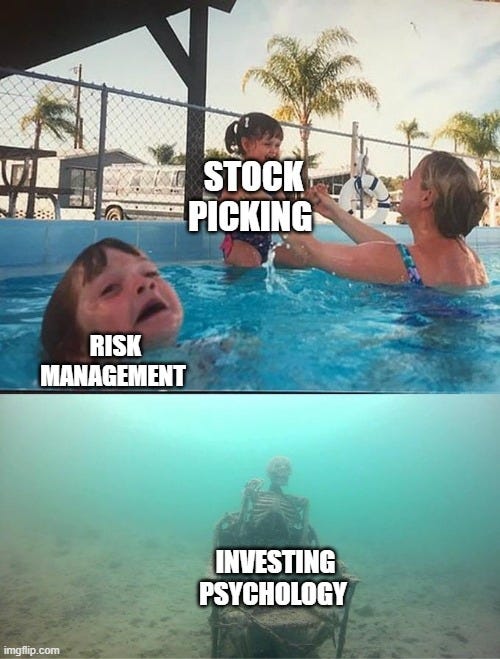
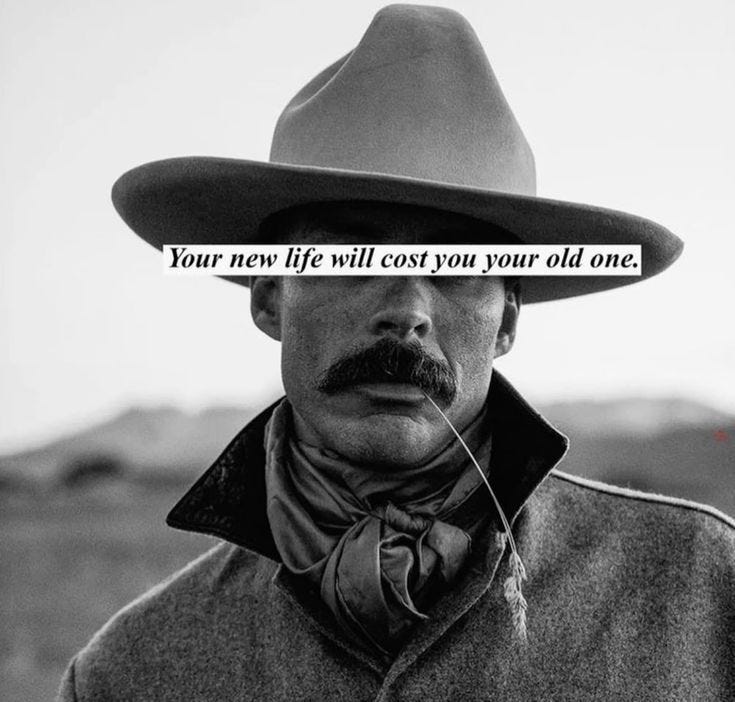
Much needed food for thought, sir, thank you!